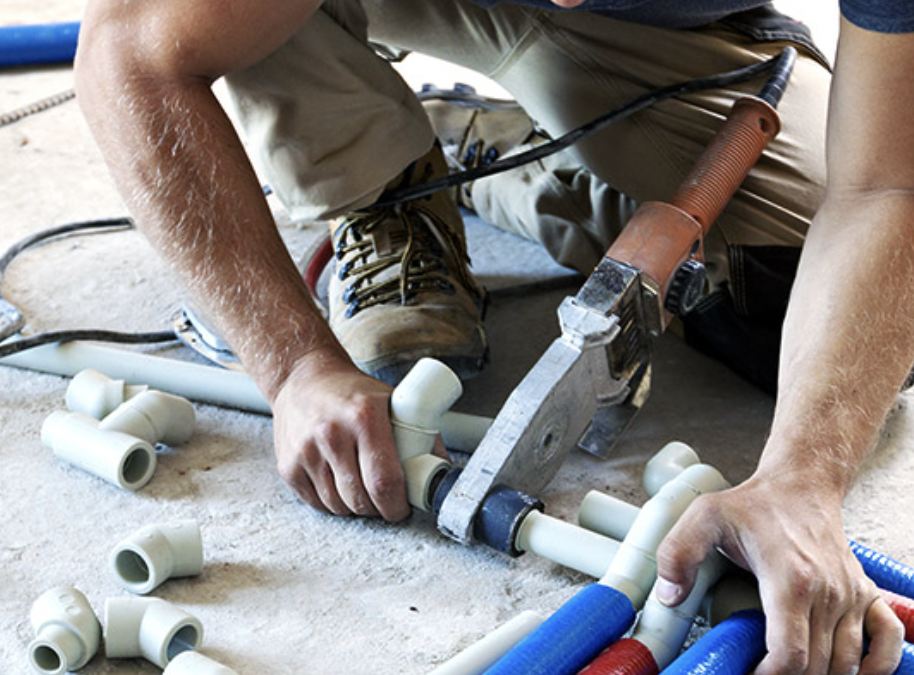Tankless vs. Traditional: Which Water Heater is Right for You?
Choosing the right water heater for your home is an important decision that requires careful consideration of several factors. One of the most significant decisions you’ll need to make is whether to go with a traditional water heater or a tankless one. This blog post will provide you with a comprehensive comparison of the two types of water heaters to help you decide which is the best option for your household. And when you’re ready to make your decision, Cook’s Plumbing is here to provide you with expert installation and maintenance services.
Traditional Water Heaters
Traditional water heaters are the most common type of water heater found in American homes. They consist of a large tank that stores and heats a reservoir of water that is ready to use at any time. When you turn on the hot water tap, the preheated water is drawn from the tank and delivered to the faucet. Here are some of the pros and cons of traditional water heaters:
Pros:
- Lower upfront cost: Traditional water heaters are generally less expensive to purchase and install than tankless models.
- Simpler installation and maintenance: Because they have been around for decades, most plumbers are familiar with how to install and maintain them. Plus, they are relatively simple to troubleshoot and repair.
- Multiple fuel options: Traditional water heaters can run on a variety of fuels, including natural gas, propane, and electricity.
Cons:
- Higher energy bills: Traditional water heaters consume more energy than tankless models because they constantly heat the water in the tank, even when it’s not being used.
- Limited hot water supply: Traditional water heaters have a finite amount of hot water available, so if you use a lot of hot water at once, you may run out before it has had time to reheat.
- Limited lifespan: Traditional water heaters typically last 10-15 years before needing replacement.
Tankless Water Heaters
Tankless water heaters, also known as on-demand water heaters, heat water as it’s needed, rather than storing it in a tank. When you turn on the hot water tap, cold water flows through a heat exchanger, where it is rapidly heated by either a gas burner or an electric element. Here are some of the pros and cons of tankless water heaters:
Pros:
- Energy efficiency and cost savings: Tankless water heaters consume less energy than traditional models because they only heat water when it’s needed, resulting in lower utility bills.
- Endless supply of hot water: Because they heat water on demand, tankless models can provide an endless supply of hot water, so you’ll never run out.
- Longer lifespan: Tankless water heaters can last up to 20 years or more, which is longer than traditional models.
Cons:
- Higher upfront cost: Tankless water heaters are more expensive to purchase and install than traditional models, which can make them less attractive to budget-conscious homeowners.
- More complex installation and maintenance: Tankless water heaters require specialized installation and maintenance procedures that may not be familiar to all plumbers.
- Limited fuel options: Tankless water heaters typically require a high-capacity gas line or a large electrical circuit, which may not be available in all homes.
Factors to Consider When Choosing a Water Heater
When choosing between a traditional and a tankless water heater, there are several factors you’ll need to consider to make the right decision for your household. Here are some of the most important factors to keep in mind:
- Household hot water needs: Think about how much hot water your household uses on a daily basis and how many people live in your home. If you have a large family that uses a lot of hot water, a tankless water heater may be the better choice because it provides an endless supply of hot water.
- Budget: Your budget will also be a significant factor in your decision. While traditional water heaters are generally less expensive upfront, they may end up costing more in the long run due to their higher energy consumption. Tankless water heaters have a higher upfront cost, but they can save you money in the long run due to their energy efficiency.
- Fuel availability: Consider what types of fuel are available in your area and what your home is set up for. If your home is already set up for natural gas, a traditional water heater may be the most cost-effective option. If you don’t have access to natural gas, an electric tankless water heater may be the best option.
- Installation requirements: Both traditional and tankless water heaters have specific installation requirements that you’ll need to consider. Traditional water heaters require a large tank that needs to be installed in a utility closet or basement. Tankless water heaters can be installed in a variety of locations, including closets, attics, and garages. Keep in mind that tankless water heaters may require additional ventilation or electrical work.
- Maintenance: Regular maintenance is essential to keep your water heater running efficiently and prevent breakdowns. Traditional water heaters require less maintenance than tankless models, but they may need to be flushed annually to remove sediment buildup. Tankless water heaters require annual maintenance, including descaling to remove mineral buildup in the heat exchanger.
Choosing the right water heater for your home is a big decision that requires careful consideration of several factors. While traditional water heaters are a tried-and-true option, tankless water heaters offer several benefits that may be more appealing to modern homeowners. Ultimately, the decision comes down to your household’s hot water needs, budget, fuel availability, installation requirements, and maintenance preferences. If you need help choosing and installing a water heater, Cook’s Plumbing is here to assist you. Our team of expert plumbers can help you evaluate your options and select the best water heater for your home. Contact us today!

